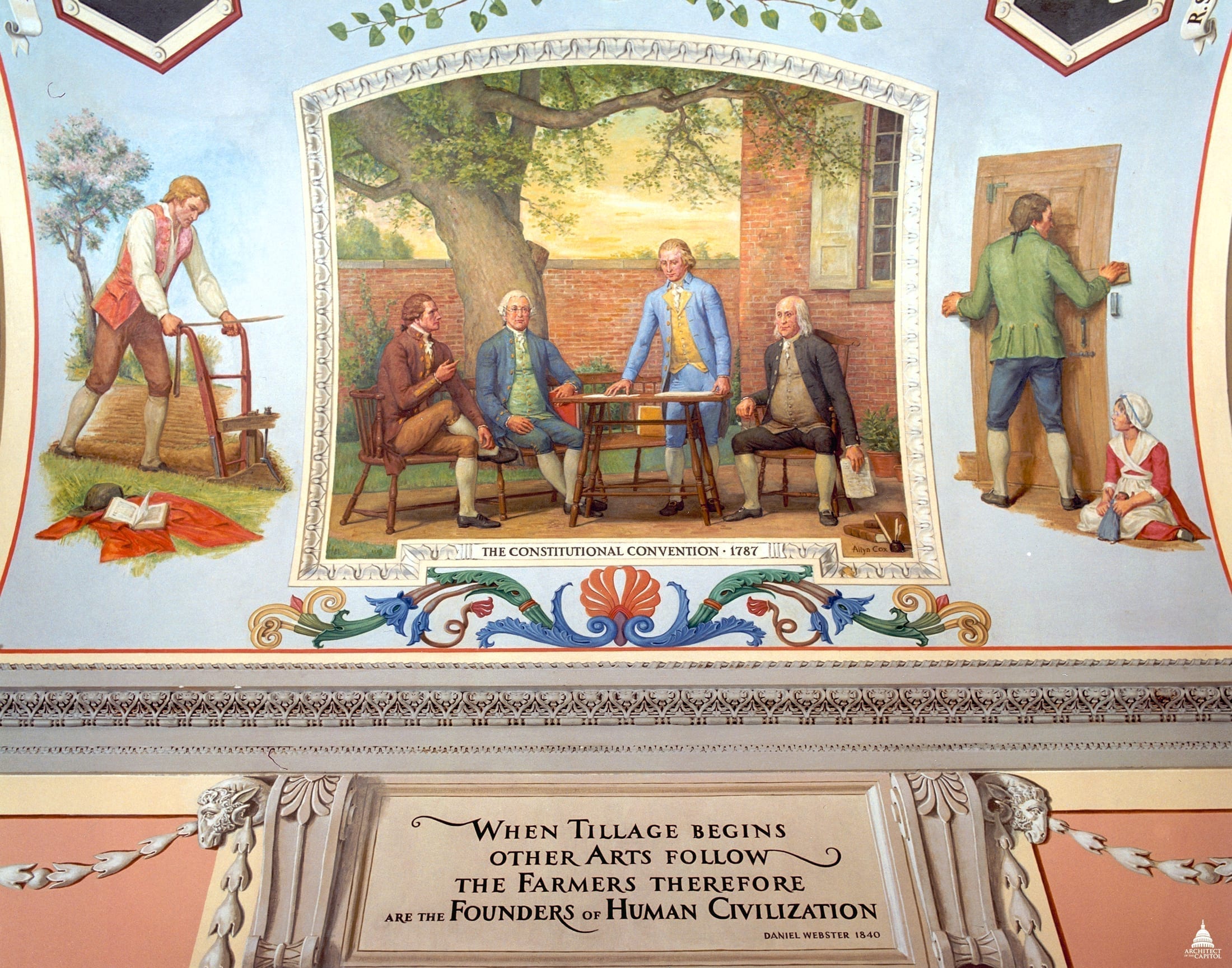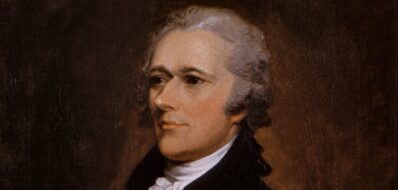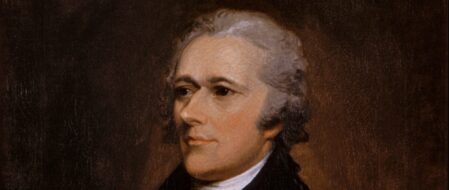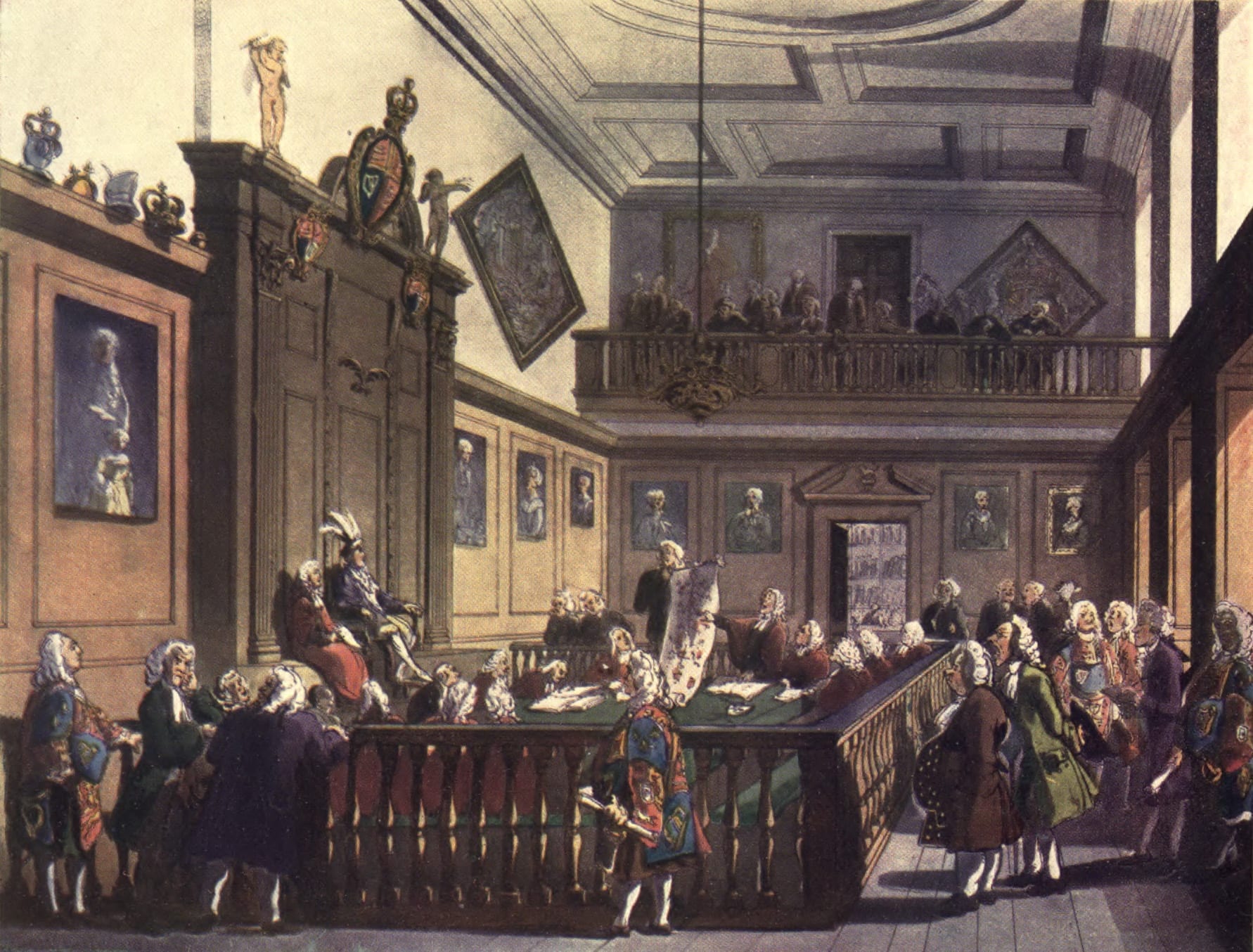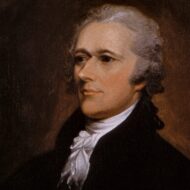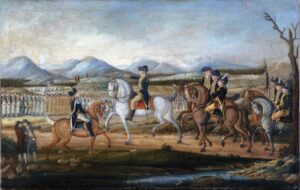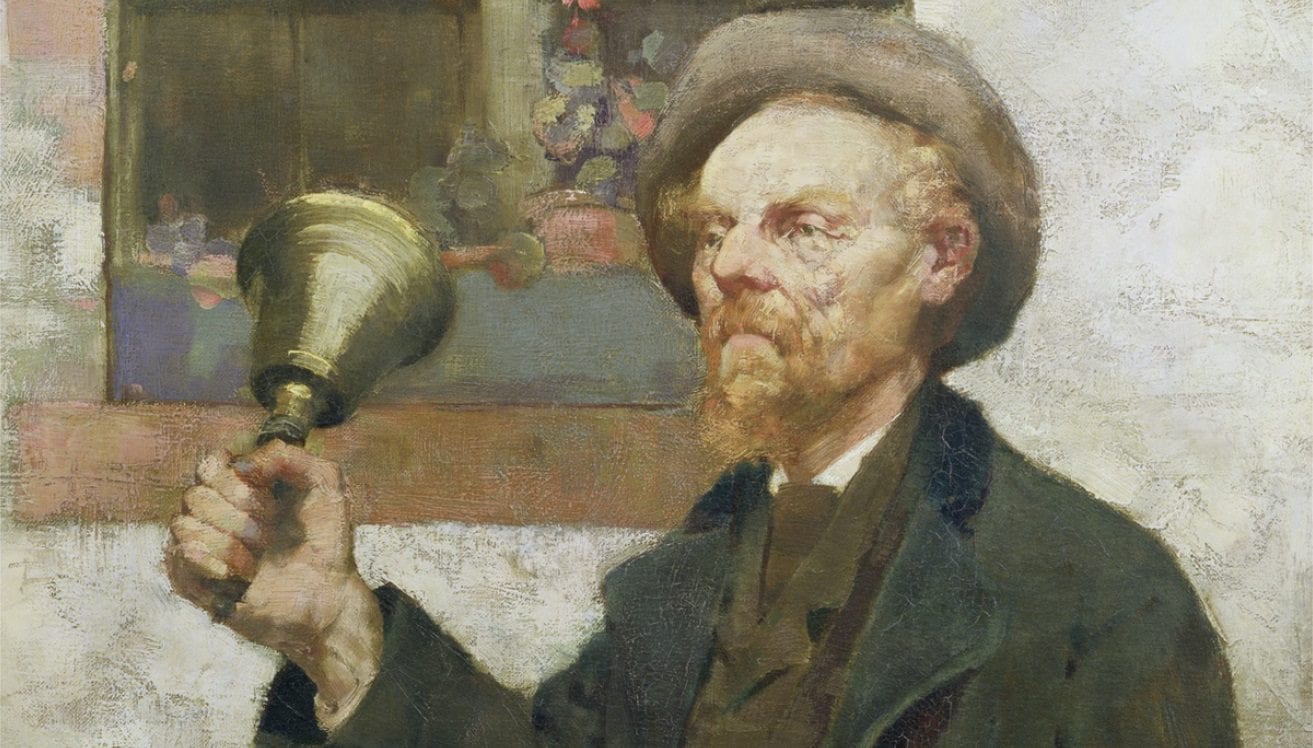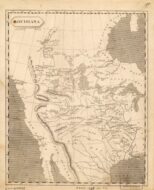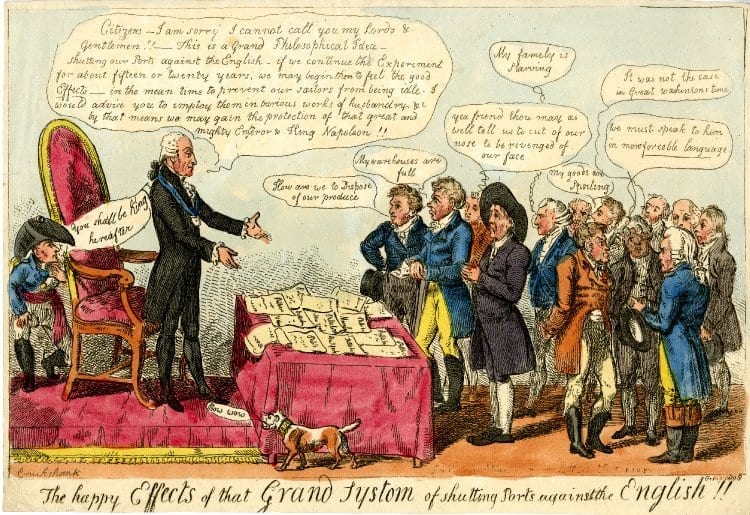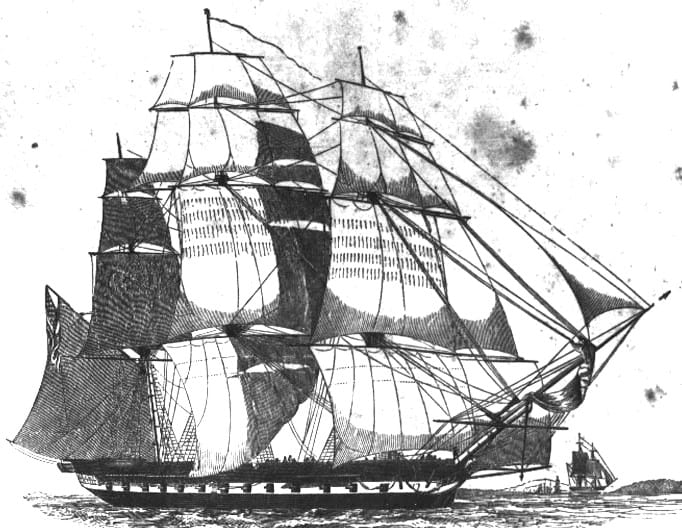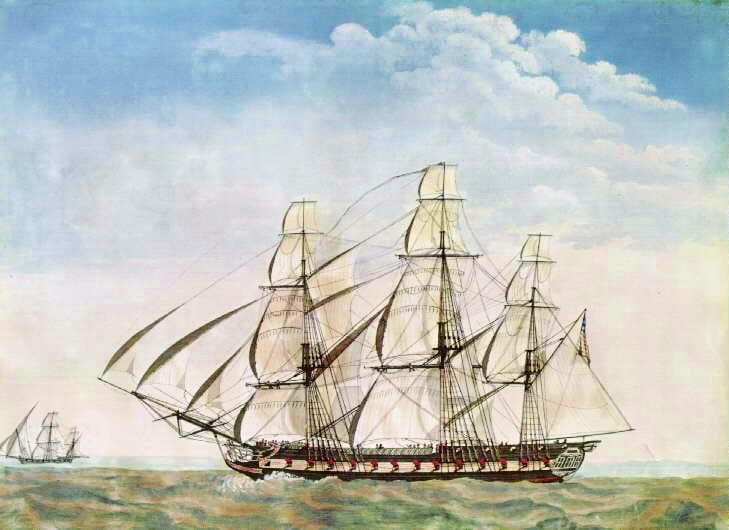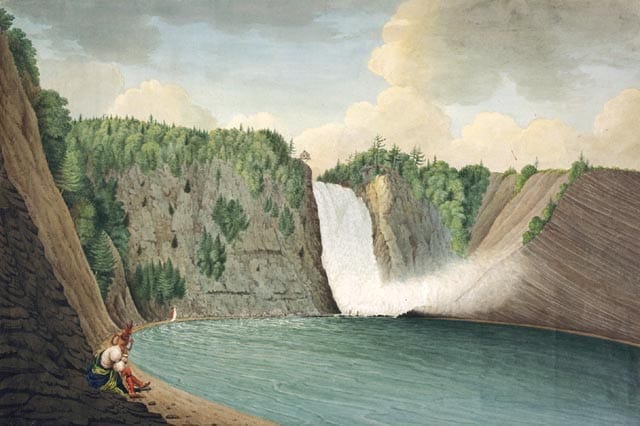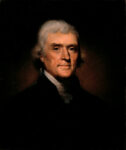
No study questions
No related resources
Introduction
In 1791, the first Congress passed an excise tax on distilled alcohol, the first tax ever levied by the national government on a domestic manufacture. Farmers in the nation’s frontier counties (who commonly turned much of their grain crop into whiskey for easier transportation to eastern markets) bore the brunt of the tax and rapidly made their dissatisfaction with the policy known. Resistance was best organized in the four western counties of Pennsylvania, whose residents held a series of public meetings to draft petitions urging their representatives to repeal the law. At the same time, these meetings adopted resolutions advising individual non-compliance with the law, framing it as an unjust imposition upon the liberties of the people.
The conflict dragged on for several years, and when their initial efforts at peaceful non-compliance failed to secure the repeal of the excise, some western Pennsylvanians adopted tactics of violent resistance to the enforcement of the law. A number of excisemen were accosted in the line of duty, tarred and feathered and (in at least one instance) tied up outside overnight in an attempt to coerce them into renouncing their commissions. When accounts of the violence reached the national government in Philadelphia, Secretary of the Treasury Alexander Hamilton (whose department was ultimately responsible for the revenues collected by the excise) prepared a report for President George Washington.
Hamilton’s report begins by describing the situation as a “disagreeable crisis” but ends by labeling the parties involved as insurgents, and their resistance as a domestic insurrection. He is frequently credited with convincing the president that matters would not be resolved apart from the use of military force, with the result that Washington issued a presidential proclamation to that effect. Meanwhile, Hamilton’s pseudonymous Tully essays were meant to turn public opinion against the rebellion and bolster public support for the president’s decision to send in the militia. (In actuality, Washington himself took command of the nearly 13,000 troops that were marched to the West in October 1794, the only time an American president has actually served as a combat commander while in office; see Frederick Kemmelmeyer’s painting of the event, Washington Reviewing the Western Army at Fort Cumberland, Maryland).
Hamilton’s essays and the marshaling of troops succeeded in quelling the rebellion without further violence. Yet the central question raised by the insurgency remained: to what extent and in what ways can citizens in a republic organize to resist laws they find unjust or immoral before becoming rebels or traitors? In the years following the incident, moderate opponents of the excise tax and other strongly national policies like it would offer opposing narratives of the insurrection in which they attempted to present the national government as oppressive.
William Findley (a Republican from Western Pennsylvania who served as a long-time member of the House of Representatives), for example, downplays the violence of the rebels and instead focuses on the government’s attempt to restrict the freedoms of speech and association of individual citizens in his Defense of the Insurgents. Such interpretations were repeated by many others over the course of John Adams’s presidency and doubtlessly helped to bolster the rise of the Jeffersonian Republicans as a substantial opposition party within national politics.
William Findley, History of the Insurrection in the Four Western Counties of Pennsylvania: in the Year M.DCC.XCIV. With a Recital of the Circumstances Specifically Connected Therewith: and an Historical Review of the Previous Situation of the Country (Philadelphia: Samuel Harrison Smith, 1796), pp. 47-50, 53-55; 130-131, 166-167. Online at: https://goo.gl/pmQyGc.
. . . It is true, it may be pled that popular meetings are often conducted with indiscretion, and have a tendency to promote licentiousness. This is admitted; but it does not therefore follow that such meetings should be prohibited by law or denounced by government. Doing so, would be reducing the people to mere machines, and subverting the very existence of liberty. It is the duty of the legislature not only to accommodate the laws to the people’s interests, but even, as far as possible, to their preconceptions; for as a republican government rests on the people’s confidence, whatever weakens that confidence saps the foundations of the government as effectually as treason and rebellion, though not so rapidly. There are few instances of treason and rebellion which may not be traced to indiscreet laws as their source. It is generally one indiscretion exciting another.
It will not do to say, that to hold meetings to remonstrate against the passing of a law is admissible, but that to remonstrate against an existing law is improper. Such doctrine in this extensive country is absurd, for it must always happen, that a great proportion of the people, who are to be governed by the laws, know nothing about them ‘til they are enacted or in operation, consequently cannot petition against their passage.
It is equally absurd to assert, that because our laws are enacted by our own representatives, therefore we ought to submit to them without remonstrance, ‘til our representatives, who know our circumstances, and partake of our interests, think proper to repeal them. This doctrine is supported by a presumption, that a government of representatives can never mistake the true interests of their constituents, not be corrupted or fall into partial combinations, whereas the contrary is presumable from the nature of man, and verified by immemorial experience.
If the people have a right to petition for the repeal of a law, or remonstrate against its injustice or inexpediency, surely, they have a right to meet, publish their sentiments, and correspond through the whole extent of the country affected by the laws, without the imputation of combining against the government. Their characters indeed are responsible to public opinion for the indiscrete use of that right, and their persons and property to the laws for the infractions committed on them.
Experience will not justify the claim of implicit obedience to the laws even of a representative legislature. Even in such there may be combinations so strong as to subvert the constitution itself; and as the disposal of the public property and the administration of the national force is necessarily vested in the government, temptations, too strong for the ordinary portion of virtue enjoyed by mankind, may present themselves too successfully to the avarice or ambition of those vested with the power of dispensing the public will. Instances of this are to be found in the history of all nations, and proofs of it are not wanting even among ourselves, though as a nation we are yet in our infancy.
We are certainly under a moral obligation to preserve our own life and the life of our neighbours. Every instance of actual opposition to government, obliges it to have recourse to force and coercion for its own preservation, for the authority of government cannot be distinguished from the government itself. Though forcible opposition has often been made to particular laws, without the remotest intention in those who opposed the law to overturn the government, yet it is not to be supposed, that those who administer the government will be moved to change their measures by a defiance of their power to support them. Nor indeed can this be done in a republican government, without such an imputation of weakness as will invite to forcible opposition from every discontented party. Therefore citizens who conceive themselves oppressed by partial laws, should consider that a defiance of the power of government, by forcible opposition to the authority of the laws, eventually leads to hostility and bloodshed, and that there is no telling the end of those measures from their beginning. Everything that has a tendency to agitate the public mind to an unusual degree, ought to be avoided, because when the mind is highly agitated with respect to public measures it is too much disturbed to judge deliberately and is predisposed to act without discretion. The public mind may be agitated by those who cannot direct or control its exertions. We are under a moral obligation to respect government, not only as a divine ordinance, but also as a moral compact, binding the people to one another for its support.
It is certain, however, that the government and law of some countries are not worth preserving, and even where a government is good in itself it may be perverted in the administration. As it is for the promoting of mutual happiness and security only that government is valuable, therefore the power of altering or amending governments is expressly declared to be in the people, who are the judges of their own happiness, by some constitutions. It is, however, radically in them, whether expressed in a written instrument or not.
When the change of a government, a revolt from it, or a temporary opposition to its laws, such as the opposition of the colonies to the stamp and tea acts was, is believed to be morally right, it is yet a matter of the greatest delicacy, to calculate with accuracy with respect to the prudence or policy of commencing the opposition contemplated. When the mind is highly agitated, it is very unfit to examine the resources to support opposition, or to calculate with precision the probable consequences of it. . . .
. . . A democratic society had been erected at Washington town, a few months preceding the insurrection, and it published some intemperate resolutions respecting the conduct of government relative to the navigation of the Mississippi, the appointment of a chief justice and a senator as ambassadors to Europe, etc. But I do not remember that they said anything against the excise law. Their resolutions were written in imitation of resolutions that had been published in Kentucky. Though there is no proof that these publications had any influence in promoting the insurrections, yet the damned democratic societies, as they were called, were considered as the cause of it by many in the army, from the generals down to the privates. I found too, that it was generally thought that the country was full of those societies, though in fact, there was but one, and that one had been of short duration and composed of but few members. . . .
The journals of Congress and the debates published in the newspapers in the winter following will give a standing testimony of the irritation that prevailed at that time against democratic societies, not only in the army, but in the councils of the United States. The attempt in government to suppress popular societies had a tendency to revive them when they were on the decline. I have ever thought it impolitic in government to denounce where it cannot punish. Societies cannot be suppressed in a free government, nor should it be attempted. They will do good or ill according to the sense and discretion of those who compose them: therefore, in order to reform societies we must begin with making men wiser and better; when they blazon the measures of administration or panegyrize the persons who conducted them, they are not denounced, therefore, when they do otherwise they must be tolerated.
. . . In June 1791, the operation of the excise was to commence . . . an advertisement was published, inviting the citizens of the western counties to meet at Redstone Old Fort, to consider and give advice how they should proceed with respect to the excise law . . . I never yet knew who first promoted the meeting, but the design was lawful and proper, it was to conduct measures for petitioning Congress in order to quiet the minds of the people.
. . . The great error among the people was an opinion that an immoral law might be opposed and yet the government respected, and all the other laws obeyed, and they firmly believed that the excise law was an immoral one. . . .
Inaugural Address (1797)
March 04, 1797
Conversation-based seminars for collegial PD, one-day and multi-day seminars, graduate credit seminars (MA degree), online and in-person.






